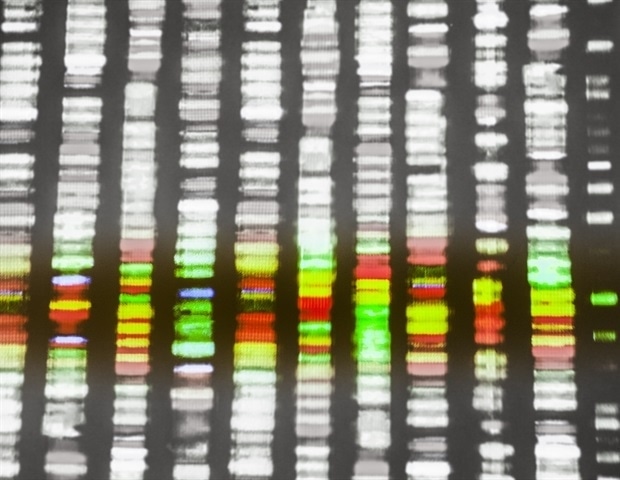
A genetic take a look at often called chromosomal microarray evaluation (CMA) may assist determine the reason for sudden toddler demise syndrome (SIDS) or its counterpart in older youngsters, often called sudden unexplained demise in childhood (SUDC), finds a examine led by Boston Youngsters’s Hospital.
The researchers, led by Richard Goldstein, MD, Ingrid Holm, MD, MPH, and Catherine Brownstein, MPH, PhD, name for making CMA routine in investigating SIDS and SUDC. They revealed their examine findings on-line November 7 within the journal Superior Genetics.
“We predict we’ve sufficient data to say that CMA is value contemplating when a toddler has died with out clarification, and price exploring additional as a method to perceive these deaths higher,” says Goldstein, who directs Robert’s Program on Sudden Surprising Loss of life in Pediatrics at Boston Youngsters’s and was a senior creator on the examine.
The crew used CMA to check samples from 116 deceased infants and toddlers as much as 28 months outdated whose deaths had been labeled as SIDS or SUDC. In 14 youngsters (12 p.c), CMA recognized deletions or duplications of segments of the kid’s DNA or small DNA rearrangements that had been pathogenic or “favoring pathogenic.”
CMA is already used routinely in youngsters with situations corresponding to autism, developmental delay, and a number of congenital anomalies, and youngsters with undiagnosed situations.”
Ingrid Holm, Research’s Co-Senior Creator
To additional validate their findings, the researchers in contrast CMA leads to SIDS/SUDC sufferers with these in management teams of kids from the group and two cohorts of kids with an autism spectrum dysfunction. When scored for the probability of probably impactful chromosomal modifications on CMA, the SIDS/SUDC group scored considerably greater than controls, however had scores much like these of kids with autism spectrum dysfunction (ASD).
Most of the CMA findings had no apparent relationship to SIDS/SUDC and name for additional investigation. For instance, two youngsters had undiagnosed Klinefelter syndrome, by which boys are born with an additional X chromosome however usually have a traditional lifespan. A number of recognized chromosomal deletions/duplications have additionally been related to neurodevelopmental situations, together with seizures, ASD, developmental delay, and schizophrenia.
Including to the take a look at arsenal
In earlier work, Boston Youngsters’s researchers used whole-exome sequencing (sequencing the 1 to 2 p.c of the genome that encodes proteins) to judge youngsters whose deaths had been labeled as SIDS or SUDC. In that examine, 11 p.c of kids had genetic variants (alterations) that seemingly performed a task of their deaths. It stays to be seen to what extent CMA would add to those findings and the way a lot overlap there may be between the genes discovered to be altered on exome sequencing and the genes affected by DNA deletions/duplications.
The crew hopes their findings will encourage medical experts investigating SIDS deaths to succeed in out to them for help.
“Health workers are excited about genetic investigations, however they lack the sources, particularly in terms of decoding the outcomes,” says Goldstein. “We’re making an attempt to maneuver that ball ahead and supply helpful data.”
Including to exome sequencing and chromosomal abnormalities on CMA, the researchers lately bought a grant from the American SIDS Institute to review extra advanced structural modifications in chromosomes which may contribute to SIDS and SUDC, utilizing a complicated genomics platform referred to as the Bionano Saphyr to picture extraordinarily lengthy strands of DNA.
“This method offers us the power to search out structural variations which might be too large for conventional DNA sequencing to select up however too small for chromosomal microarray to detect,” says Brownstein, the examine’s first creator and scientific director of the Manton Heart for Orphan Illness Analysis Gene Discovery Core at Boston Youngsters’s. “We are able to additionally decide up cases when a section of DNA ‘flips’ to a special location on the chromosome.”
In the long run, as DNA sequencing prices come down, the researchers need to use whole-genome sequencing to research SIDS and SUDC, a single take a look at that would scale back the necessity for CMA.
Supply:
Journal reference:
Brownstein, C.A., et al. (2022) Copy Quantity Variation and Structural Genomic Findings in 116 Instances of Sudden Unexplained Loss of life between 1 and 28 Months of Age. Superior Genetics. doi.org/10.1002/ggn2.202200012.
